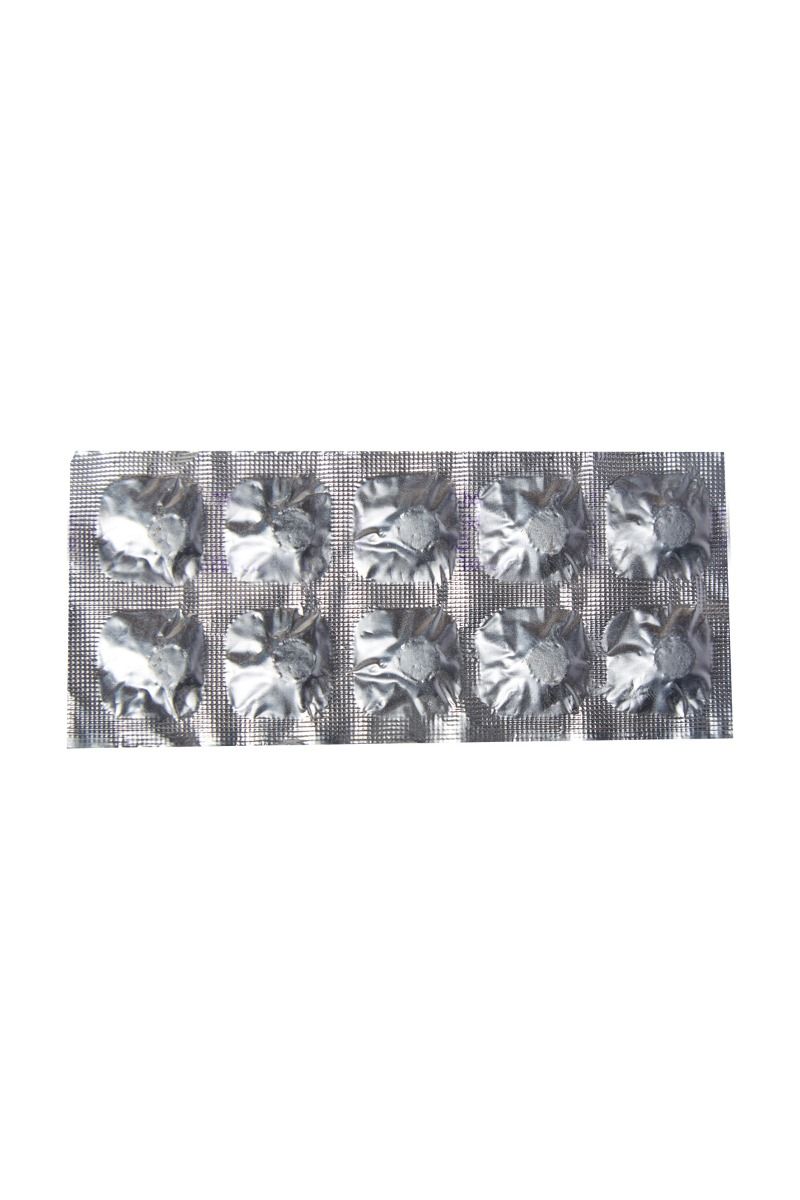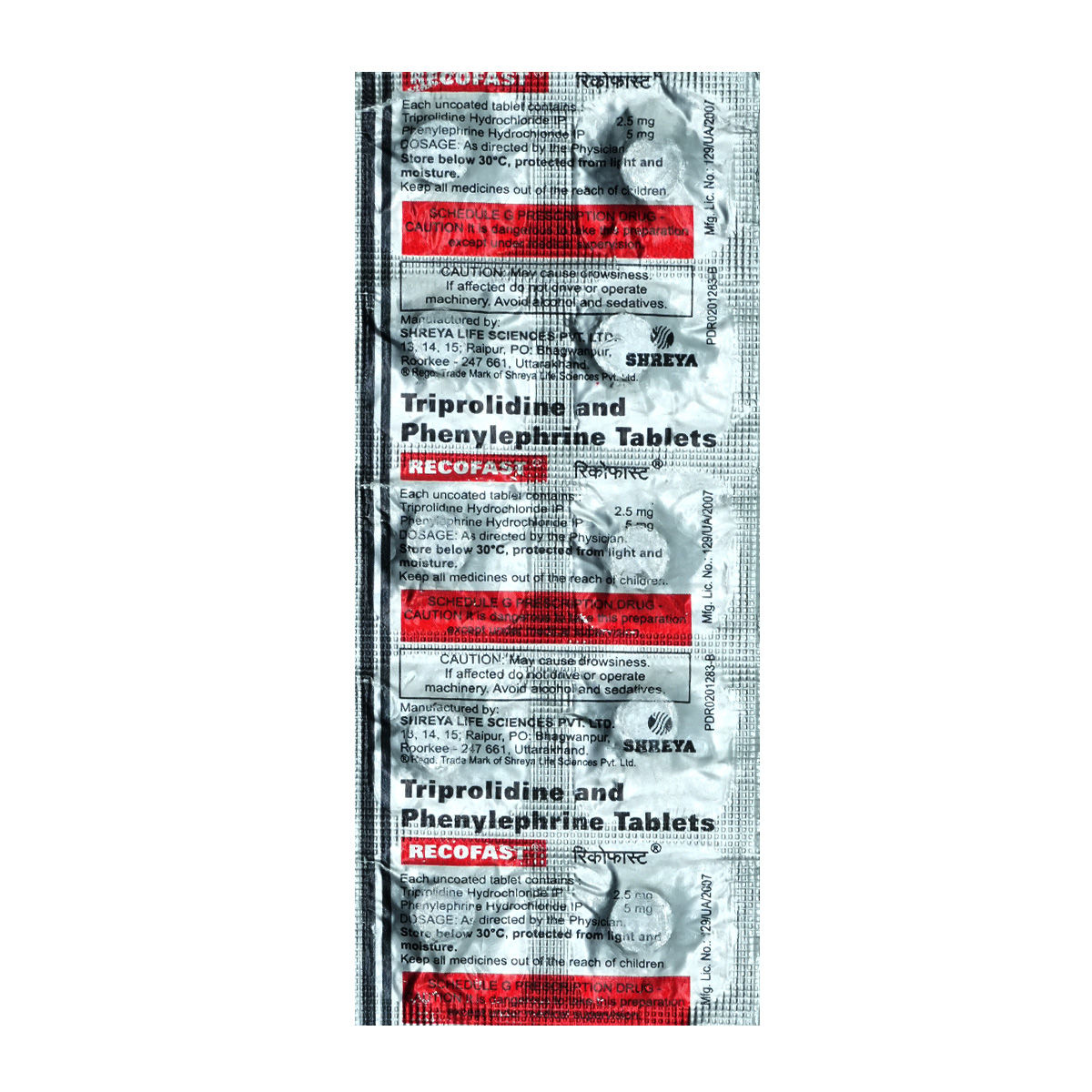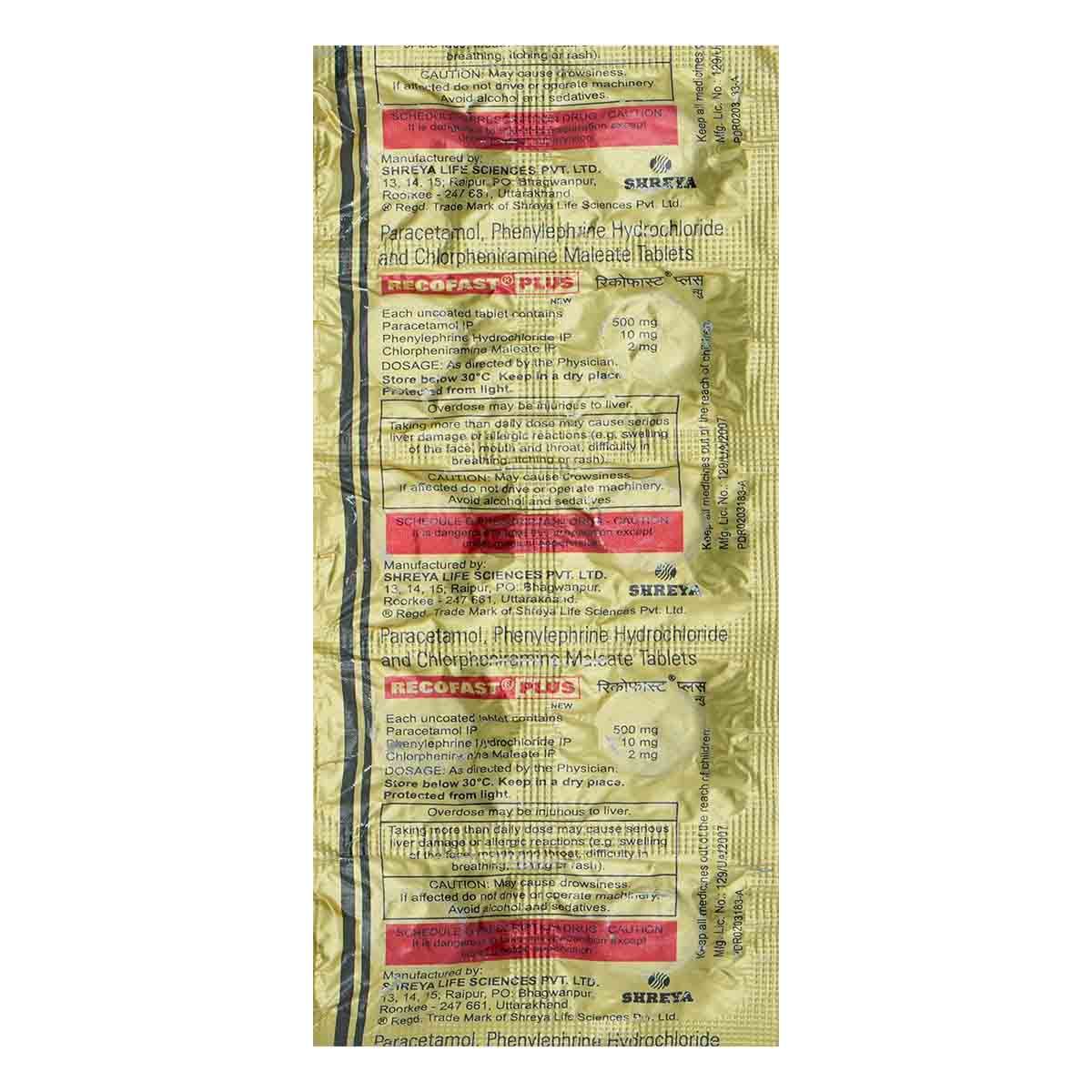Triprolidine+phenylephrine
About Triprolidine+phenylephrine
Triprolidine+phenylephrine is used to treat the common cold and allergic symptoms such as a runny nose, sneezing, itchy or watery eyes, and a blocked nose. The common cold is an infection of the nose and throat caused by viruses. Allergies are immune system reactions to foreign bodies or allergens such as certain foods, chemicals, pet dander, or pollen.
Triprolidine+phenylephrine is a combination of two medicines: Triprolidine and Phenylephrine. Triprolidine belongs to the class of antihistamines (anti-allergic drugs) that works by blocking the action of histamine, a substance responsible for causing allergic reactions. Phenylephrine is a decongestant that works by contracting and narrowing the blood vessels of the nasal passage and airways.
You should take this medicine as prescribed by your doctor. The common side effects of Triprolidine+phenylephrine are dizziness, drowsiness, nervousness, and trouble sleeping. These side effects are usually mild and don’t require medical attention. However, consult your doctor immediately if any of these side effects persist or worsen.
Do not use Triprolidine+phenylephrine if you are allergic to Triprolidine, Phenylephrine, or any other contents in it. Triprolidine+phenylephrine is not recommended for use in patients suffering from constipation, inability to urinate, stomach blockage, uncontrolled asthma, glaucoma (increased pressure in the eye), high blood pressure, heart diseases, or hyperthyroidism (overactive thyroid). Do not take Triprolidine+phenylephrine if you have taken MAO inhibitors (antidepressants) in the last 14 days. Inform your doctor if you are pregnant or breastfeeding before starting Triprolidine+phenylephrine.
Uses of Triprolidine+phenylephrine
Medicinal Benefits
Triprolidine+phenylephrine is a combination of two medicines: Triprolidine and Phenylephrine. Triprolidine is an antihistamine (anti-allergic drug) that works by blocking histamine, a substance responsible for causing allergic reactions. It also provides relief from allergy symptoms such as sneezing, running nose, watery eyes, itching, swelling, congestion, or stiffness. Phenylephrine is a decongestant that works by contracting and narrowing the blood vessels of the nasal passage and airways.
Directions for Use
Storage
Side Effects of Triprolidine+phenylephrine
- Dizziness
- Drowsiness
- Nervousness
- Trouble sleeping
- Tremor, seizure (convulsions)
- Fast or uneven heart rate
- Mood changes
Drug Warnings
Triprolidine+phenylephrine should be used with caution in patients with breathing problems, diabetes, glaucoma (increased pressure in the eye), heart problems, hypertension (high blood pressure), kidney problems, liver disease, seizures (fits), stomach blockage, hyperthyroidism (overactive thyroid), and an enlarged prostate gland (difficulty urinating). Triprolidine+phenylephrine may cause drowsiness, so do not take alcohol as it causes excessive drowsiness. Also, do not drive or operate heavy machinery if you are drowsy. It should be used with caution in children and elderly patients as they are more prone to side-effects. Do not take Triprolidine+phenylephrine if you have taken antidepressants or medicines to treat Parkinson’s disease in the last 14 days.
Drug Interactions
Drug-Drug Interactions: Triprolidine+phenylephrine may interact with other antihistamines (cetirizine and diphenhydramine), medicines used to treat high blood pressure (guanethidine, methyldopa, atenolol, and nifedipine), MAO inhibitors (isocarboxazid. linezolid, methylene blue, moclobemide, phenelzine, procarbazine, rasagiline, safinamide, selegiline, and tranylcypromine), medications used to treat cough (codeine and hydrocodone), sedatives (alprazolam, lorazepam, and zolpidem), and muscle relaxants (carisoprodol and cyclobenzaprine).
Drug-Food Interactions: Consumption of alcohol increases the risk of side effects.
Drug-Disease Interactions: Triprolidine+phenylephrine should be used with caution in patients with constipation, inability to urinate, stomach blockage, uncontrolled asthma, glaucoma (increased pressure in the eye), high blood pressure, heart diseases, or hyperthyroidism (overactive thyroid).
Drug-Drug Interactions Checker List:
Safety Advice

Alcohol
cautionAlcohol consumption may increase the risk of side-effects.

Pregnancy
cautionTriprolidine+phenylephrine is a category C medicine. When clinically needed, Triprolidine+phenylephrine is given to pregnant women after doing a risk/benefit assessment.

Breast Feeding
cautionTriprolidine+phenylephrine should be used with caution in breastfeeding mothers.

Driving
cautionTriprolidine+phenylephrine may cause drowsiness. So, avoid driving or operating heavy machinery while using this medicine if you are drowsy.

Liver
cautionTriprolidine+phenylephrine should be used with caution in patients with liver diseases. Dose adjustments may be necessary.

Kidney
cautionTriprolidine+phenylephrine should be used with caution in patients with kidney diseases. Dose adjustments may be necessary.

Children
cautionTriprolidine+phenylephrine should be used with caution in children as they are more prone to side-effects.
Habit Forming
Diet & Lifestyle Advise
Staying hydrated is vital for those with a cough or cold. Drinking liquids at room temperature can alleviate cough, runny nose, and sneezing.
The immune system is affected by stress and raises the risk of being sick. An individual can exercise regularly, meditate, do deep breathing, and try progressive muscle relaxation techniques to relieve stress.
To stay fit and safe, try to sleep at least 8 hours each night.
It is advised to avoid contact with known allergens (allergy-causing agents) such as pollen, dust, etc. Certain food items are known to cause allergies to you.
Maintain personal hygiene and keep your surroundings clean.
Special Advise
Triprolidine+phenylephrine may interfere with certain laboratory tests such as brain scan for Parkinson's disease and urine drug screening tests, leading to false test results. So, inform your doctor that you are using this medicine before undergoing the tests.
Patients Concern
Disease/Condition Glossary
Common cold: The common cold is an infection caused by viruses, mainly 'rhinovirus' affecting your nose and throat (upper respiratory tract). Children younger than 6 years of age are at the most significant risk of colds, but healthy adults can also be affected by having 2-3 colds annually. In most cases, cold symptoms are recovered within a week or ten days. However, symptoms might last longer in people who smoke or are exposed to allergens like dust, pollutants, etc. Common cold symptoms include stuffy or runny nose, sore throat, cough, congestion, mild body pain, mild headache, sneezing, low-grade fever, and feeling unwell (malaise). In some cases, the discharge from your nose may become thicker and yellow or green, which is not an indication of a bacterial infection. If you observe these symptoms, immediately contact your doctor.
Allergies: Allergy occurs when foreign elements or allergens attack and invade our body, stimulating the immune system to release histamines. Histamines are chemical substances that cause symptoms such as swelling, inflammation, redness, itchiness, itchy/watery nose and throat, and watery eyes. Allergies generally occur due to chemicals, air pollution, pet dander, dust, pollen hairs, seasonal allergies like hay fever, etc.
FAQs
Triprolidine+phenylephrine is used to treat the common cold and allergic symptoms such as a runny nose, sneezing, itchy or watery eyes, and blocked nose.
Triprolidine+phenylephrine is a combination of two medicines: Triprolidine and Phenylephrine. Triprolidine blocks histamine's action (cause allergic reactions) and Phenylephrine reduces swelling of the blood vessels in the nasal passages. Together, Triprolidine+phenylephrine can effectively treat symptoms of allergy and the common cold.
Triprolidine+phenylephrine should not be used if you have taken antidepressants in the last 14 days. Inform your doctor about all the prescription, non-prescription, and dietary supplements you are taking to identify any interactions with the Triprolidine+phenylephrine.
Triprolidine+phenylephrine should not be used in patients with uncontrolled asthma, who commonly experience flare-ups and require quick-relief medication many times in a week or daily.
Triprolidine+phenylephrine may cause drowsiness (sleepiness). So, you can take Triprolidine+phenylephrine in the nighttime if you are experiencing severe drowsiness. If you are drowsy, you should refrain from activities that require you to stay alert, such as driving or operating heavy machinery.
Do not use Triprolidine+phenylephrine with cetirizine as it increases the side-effects such as dizziness, and drowsiness. It may also affect your ability to concentrate, thinking, and judgment.
The common side effects of Triprolidine+phenylephrine are dizziness, drowsiness, nervousness, and trouble sleeping. These side effects are usually mild and don’t require medical attention. However, consult your doctor immediately if any of these side effects persist or worsen.
Yes, Triprolidine+phenylephrine may cause drowsiness in some cases. Avoid driving or operating machinery if you experience drowsiness.
You are advised to take Triprolidine+phenylephrine for the duration prescribed by the doctor. The duration of treatment will depend upon your condition and response to the treatment.
Triprolidine+phenylephrine should be given to children only if prescribed by the doctor. It should be used with caution in children as they are more prone to side-effects.
Triprolidine+phenylephrine is a combination medicine containing Triprolidine (antihistamine) and Phenylephrine (decongestant).
Before starting Triprolidine+phenylephrine, inform the doctor if you have any other medical conditions, if you are taking any other medication or if you are pregnant or breastfeeding.








